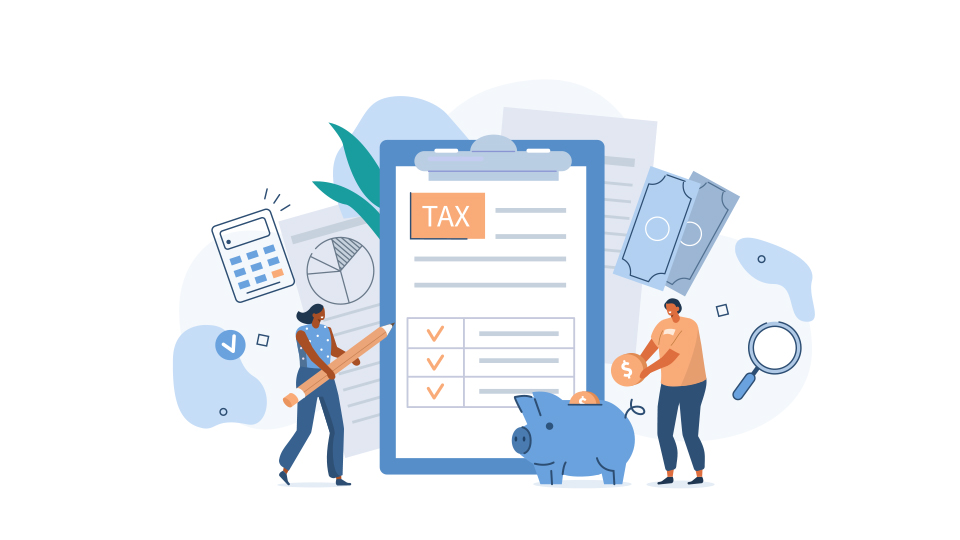Federal budget 2023-24: key outcomes for tax, super, small business
May 12, 2023

The federal government’s 2023-24 budget focuses on a number of tax and superannuation reforms, which it says will deliver “a stronger economy and a fairer society”.
Treasurer Jim Chalmers handed down the federal budget on May 9, which includes a major tax crackdown program, a compulsory ‘payday super’, and measures that small businesses can take advantage of.
Below is a summary of some of the key changes that relate to tax, superannuation, and small business:
Instant asset write-off for small businesses
For businesses with a combined annual turnover of less than $10 million, the federal government will temporarily increase the instant asset write-off threshold to $20,000.
The temporary measure will be effective from July 1, 2023 to June 30, 2024.
The $20,000 threshold will apply on a per asset basis, meaning small businesses can write off multiple assets immediately.
Assets valued at $20,000 or more, which cannot be instantly deducted, will remain in the small business simplified depreciation pool and be depreciated at 15 per cent in the first income year and 30 per cent each income year thereafter.
Requirements that prevent small businesses from returning to the simplified depreciation scheme for five years if they opt out will continue to be suspended until June 30, 2024.
Note that these concessions are less attractive than the current temporary full expensing concessions that were introduced as part of the COVID relief measures. The current concessions are due to expire on June 30, 2023.
Tax rate increase for superannuation balances over $3m
As announced earlier this year, the federal government will introduce an additional tax to superannuation earnings on balances of more than $3 million.
The new tax will come into effect from July 1, 2025 and will apply to approximately 80,000 people, leaving 99.5 per cent of Australians unaffected.
While the measure will only impact a small number of people, it will generate about $2 billion in revenue in its first full year.
Those impacted will retain the current 15 per cent concessional tax rate on income from funds below the threshold and the current rate will remain unchanged for all superannuation accounts with balances below $3 million.
Read our full article about this matter here: Tax rate increase for superannuation balances over $3m.
Introduction of compulsory ‘payday super’
As part of the government’s superannuation reforms, a compulsory ‘payday super’ plan will be introduced, requiring businesses to pay their employees’ superannuation on payday rather than quarterly.
Coming into effect on July 1, 2026, the changes will reduce the risk of unpaid superannuation debts – an issue which costs Australian workers billions of dollars each year.
More frequent payments also mean more time for investment earnings to compound, leading to better retirement outcomes.
Under the new plan, it will be easier for businesses to manage their payrolls and reduce accounting liabilities.
Tax compliance crackdown program expanded
The federal government will crack down on GST, personal income tax and financial crime activity by extending the Personal Income Tax Compliance Program.
The Australian Taxation Office (ATO) will receive $588 million over four years, starting from July 1, 2023, to expand the program. This will allow the ATO to continue to deliver proactive, preventative, and corrective activities in key areas of non-compliance.
The tax office will also increase the scope of investigations into emerging areas of risk, such as deductions relating to short-term rental properties to ensure they are genuinely available to rent.
The measure is expected to generate $788 million in revenue next financial year alone, and $3.8 billion over the next four financial years.
Small business lodgement penalty amnesty
A lodgement penalty amnesty program will be offered to small businesses with a combined turnover of less than $10 million, encouraging them to re-engage with the tax system.
The amnesty will remit failure-to-lodge penalties for outstanding tax statements lodged in the period from June 1, 2023 to December 31, 2023 that were originally due between December 1, 2019 and February 29, 2022.
This will allow businesses to re-engage with the ATO to catch up on overdue lodgements, without late lodgement penalties.
Small business energy incentive
Businesses will be able to deduct an additional 20 per cent of the cost of eligible depreciating assets that support transitioning to electricity-based power and more efficient use of energy.
This applies to small and medium businesses with a combined annual turnover of less than $50 million.
Speak to the tax experts at LDB
Not sure how the federal budget impacts you?
If you’d like to know more about how the federal budget will affect your personal or business tax affairs, contact LDB by calling (03) 9875 2900 or completing the contact form below.
